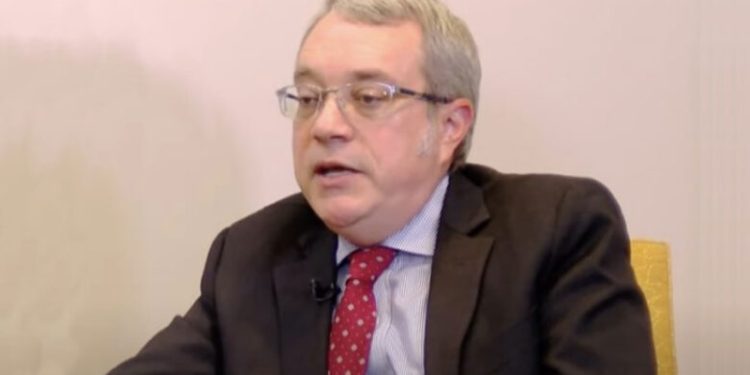Prioritise Concessional Financing Over Costly Domestic Borrowing for Capital Investments – World Bank tells Gov’t
World Bank Country Director for Ghana, Sierra Leone, and Liberia, Robert Taliercio, has advised government to make greater use of concessional external financing from institutions such as the International Development Association (IDA) instead of relying heavily on costly domestic borrowing to fund capital investments.
Speaking at the launch of the World Bank’s 2025 Policy Notes, themed “Transforming Ghana in a Generation”, in Accra on Wednesday, September 24, 2025, Mr Taliercio underscored that concessional IDA loans offer far more favourable terms compared to domestic Treasury-bill borrowing.
He observed that short-term domestic financing (T-bills) attracted an average interest rate of 27.4 percent in 2023–2024, whereas IDA regular and blend financing carried interest and service fees between 0.75 percent and 2.0 percent, coupled with extended grace periods.
“Even with recent declines in average domestic borrowing costs to 11.9 percent in September 2025, new IDA blend terms offer significantly lower rates at 1.5 percent, locked in for longer periods. So it’s an obvious choice in terms of using all IDA available before resorting to further domestic financing,” Mr Taliercio stressed.
The 2025 Policy Notes highlight Ghana’s structural challenges and propose four strategic foundations to drive long-term growth and inclusive transformation.
The first strategic foundation is restoring macro-financial stability through enhanced domestic revenue mobilisation, sustainable public finances, and reforms in critical sectors such as energy and cocoa. Ghana’s revenue mobilisation, at 13 percent of GDP in 2021, remains well below its estimated tax capacity of 21 percent and the Sub-Saharan African average. Revenue for the first half of 2025 reached 7.1 percent of GDP against a 7.3 percent target.
The second, involves raising productivity and competitiveness by strengthening human capital and creating a more business-friendly environment. Systemic bottlenecks identified include lengthy business registration processes (57 days for domestic firms compared to 28 in Morocco) and protracted litigation timelines (900 days versus 225 in Côte d’Ivoire).
The third, has to do with promoting sustainable natural resource management and resilience, with emphasis on climate-smart agriculture, agribusiness, and resilient infrastructure to address environmental degradation and boost productivity.
The fourth strategic foundation requires strengthening governance and public institutions to ensure reforms are effectively implemented and restore citizen trust in the state.
According to the World Bank, implementing these priorities decisively will be critical to achieving broad-based economic growth, job creation, and shared prosperity for Ghanaians.







